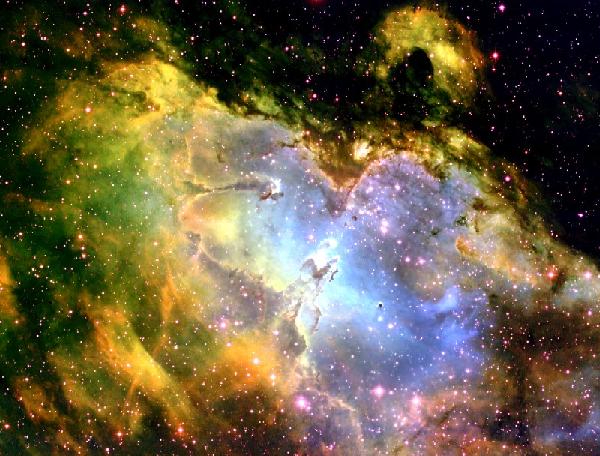In the annals of human spiritual evolution, moments that transmute the trajectory of collective consciousness epitomize catalytic instances of divine and human interrelation. One such watershed occurrence is the revelation of Bahá’u’lláh, a pivotal event heralding the dawn of a new epoch in the religious landscape of humanity. The question that perennially arises when engaging with this profound moment is: what, if anything, distinguishes Bahá’u’lláh’s revelation from the myriad of spiritual teachings that have traversed the sands of time? This inquiry invites further exploration into the transformative implications his teachings hold for contemporary society.
The Context of Revelation
The mid-19th century, a period brimming with sociopolitical upheaval and philosophical exploration, provided a fertile backdrop for Bahá’u’lláh’s proclamation. Emerging from the turmoil of the Persian Empire, as traditional structures began to wane, the realm of spirituality beckoned for an evolution. Bahá’u’lláh, born into a noble family in 1817, experienced a compelling spiritual journey that ultimately led to his incarceration and exile. This period of torment was not merely punitive; instead, it served as a crucible from which his divine messages would ultimately emerge.
Understanding the Revelation
Central to Bahá’u’lláh’s teachings is the principle of the oneness of God, which asserts that throughout history, God has sent forth a series of divine messengers or Manifestations, each suited to the needs and circumstances of their time. Jesus, Moses, Muhammad, and other prophets are viewed as predecessors of Bahá’u’lláh, each contributing to an ever-unfolding narrative of human spiritual development. This progressive revelation offers a contrast to the often static interpretations of religious texts, which can result in schism and conflict, suggesting instead a harmonious rather than a fragmented understanding of faith.
Moreover, Bahá’u’lláh’s assertion of the oneness of humanity challenges deeply entrenched notions of ethnic, racial, and national superiority. In a world marred by divisiveness, his teachings implore individuals to perceive beyond superficial distinctions, advocating for unity and collaboration as essential tenets for societal progress. Do we not, in our most earnest moments, yearn for this collective harmony, yet succumb to the simplicity of tribal identities that fracture rather than unify?
The Transformative Principles of Bahá’u’lláh
The revelation incited by Bahá’u’lláh crystallized into several key teachings that encapsulate the essence of his message:
- The Oneness of Religion: This principle elucidates that all major religions stem from the same divine source. Bahá’u’lláh articulated that genuine faith is not the propagation of dogma but the embodiment of love and service.
- The Equality of Women and Men: A groundbreaking assertion made by Bahá’u’lláh was the unequivocal equality of the sexes. He posited that the upliftment of women is imperative for societal advancement, a notion that resonates with contemporary movements advocating for gender equality.
- The Independent Investigation of Truth: Encouraging individuals to seek personal understanding rather than blindly adhering to tradition fosters critical thinking and personal responsibility.
- Universal Peace: By envisioning a world devoid of conflict, Bahá’u’lláh laid the groundwork for a global society that values cooperation over competition.
The Implications of Bahá’u’lláh’s Teachings
As we traverse the modern era, Bahá’u’lláh’s insights presage profound solutions to some of humanity’s most pressing challenges. The global crises we grapple with—climate change, social injustice, and political discord—are not insurmountable but demand a reevaluation of our priorities through the lens of unity espoused by Bahá’u’lláh.
However, therein lies a challenge: how do we transition from theoretical acceptance of these principles to actionable lifestyle changes that embody them? Our current sociocultural frameworks often retrain us in entrenched divisions rather than inspire collaborative growth. The teachings of Bahá’u’lláh urge us to transcend this inertia, advocating for a paradigm shift that is not merely intellectual but practical.
Case Studies in Application
Concrete examples of communities and individuals who have embraced Bahá’u’lláh’s teachings provide compelling evidence of their applicability. Global initiatives focusing on interfaith dialogue, community service, and social equity underscore the potential of these principles to inspire transformative movements worldwide. Projects aimed at fostering intercultural understanding and cooperation are being implemented across various regions, suggesting that the ideals of Bahá’u’lláh can indeed manifest in tangible ways.
The Role of Individual Agency
Ultimately, the potency of Bahá’u’lláh’s revelations rests in the hands of individuals committed to enacting change. The concept of personal agency resonates profoundly within the framework of his teachings. Each person has the capacity to contribute to the broader narrative of humanity through acts of kindness, service, and advocacy. By engendering a sense of responsibility to oneself and the community, individuals can sow the seeds of change that resonate through generations.
Conclusion
The revelation of Bahá’u’lláh represents not merely a pivotal moment in religious history but a clarion call to humanity to awaken to its potential. In a world rife with challenges, his teachings invite us to explore the depths of unity, justice, and love. The playful yet profound question remains: will we heed this call and embrace the journey towards a more cohesive and enlightened existence? As we navigate this path, the challenge remains to imbue these principles into the fabric of our daily lives, enriching not just our own souls but the collective spirit of humanity.
